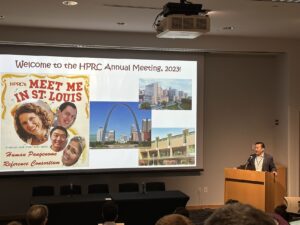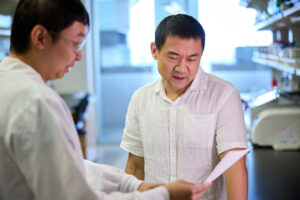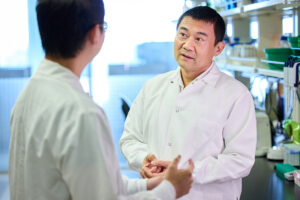The newly launched Department of Genetics fellow-to-faculty program aims to prepare fellows not just as scientists but as future leaders. The first recruit, Macias-Velasco, earned his PhD at WashU in computational and systems biology, a field that uses sophisticated statistical approaches to understand human genetics and the development of disease.
WashU Medicine’s fellow-to-faculty programs nurture growth of talented early-career scientists (Links to an external site)









